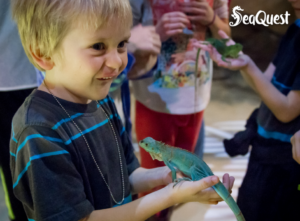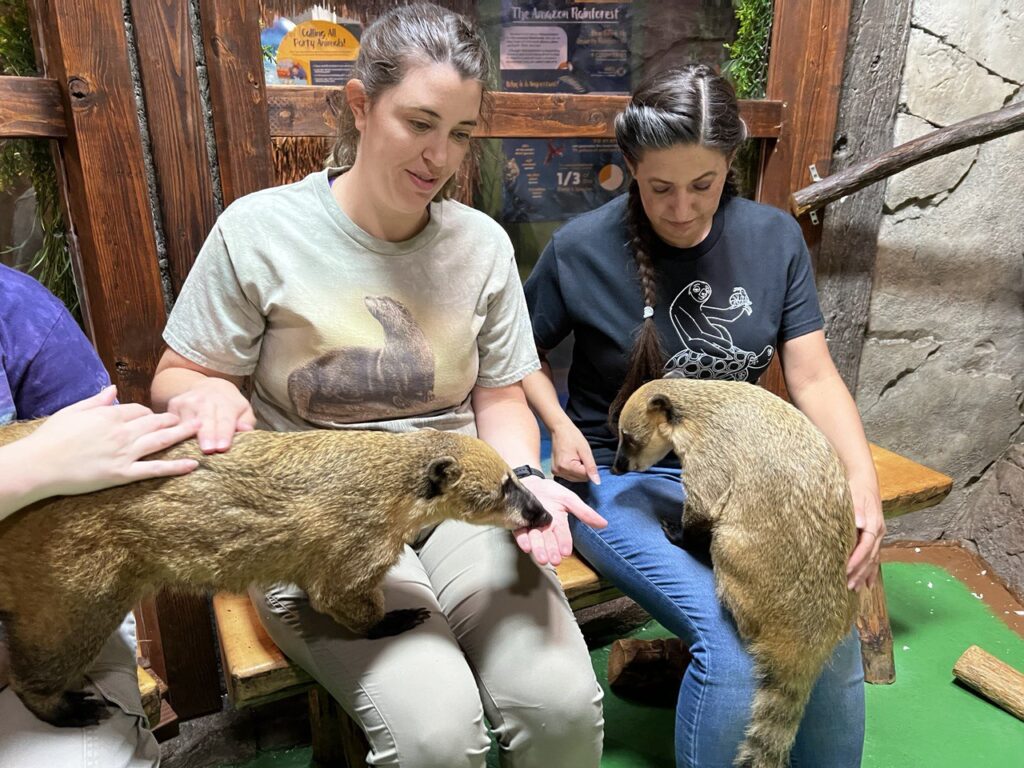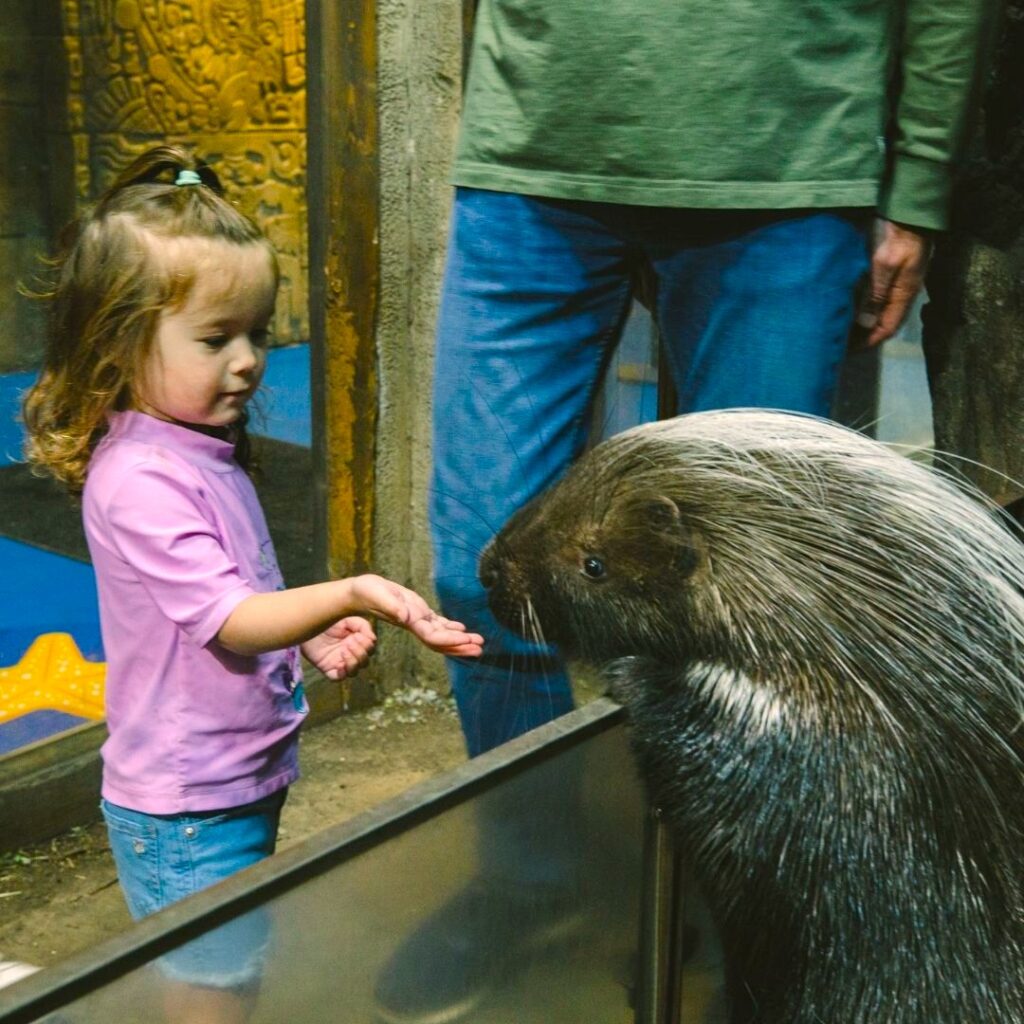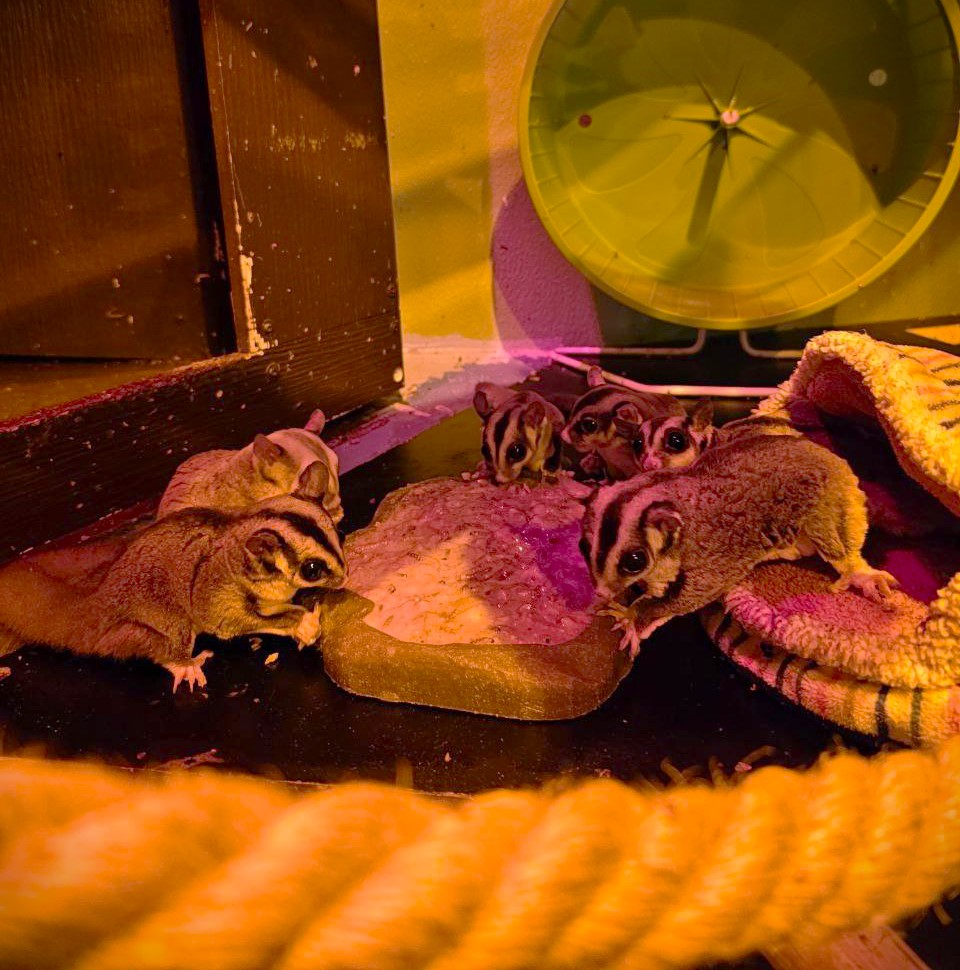Exotic Animals You Can Meet at SeaQuest!
Share it on:
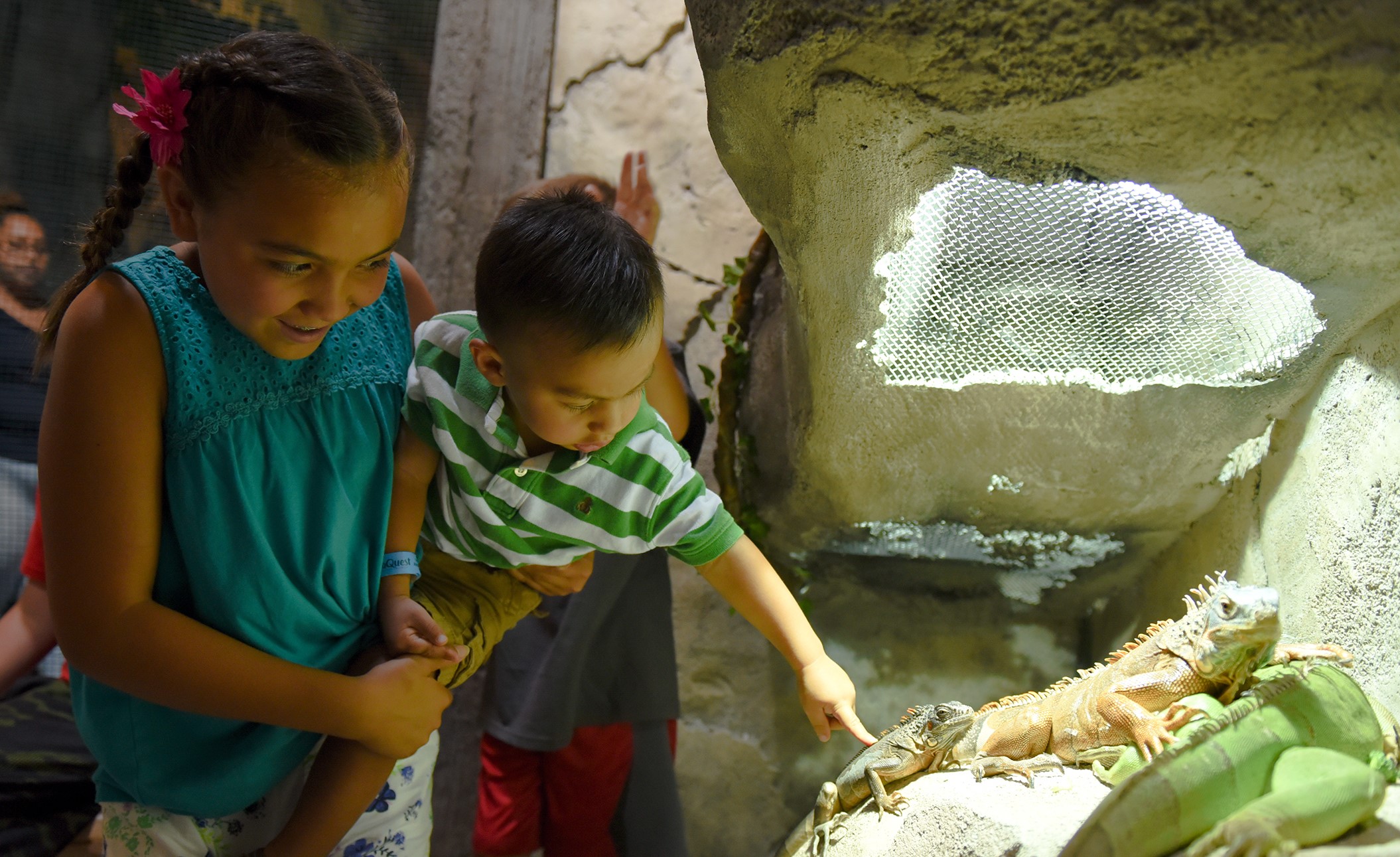
At SeaQuest, we love connecting people with amazing animals and marine life from around the planet. There are so many unique and fascinating creatures all over the globe. That is why SeaQuest serves as an exceptional educational opportunity to see, and meet some of these amazing creatures up close and personal! Here are a few animals you can experience and interact with at SeaQuest!
Meet a Capybara
Believe it or not, Capybaras are the largest rodent species in the world! Commonly found in South America, they’re easily recognized because of their peculiar body shape and adorable coloration. This endearing mammal has a dense, barrel-shaped body with a short head and reddish-brown fur on top. These highly social creatures live in groups of 10 to 30 at one time. In some situations, they can even form herds of up to 100! They are chatty little animals who squeak, chirp, and bark around their family. The capybara is also known for its highly friendly behavior. They’ve been spotted hanging out with creatures of all kinds – not just other capybaras. Some of their other friends include turtles, ducks, fawns, monkeys, and other random birds. They live in the dense rainforests that run alongside bodies of water — lakes, streams, rivers, ponds, swamps, and marshes. If you can’t make it down to the rainforests of South America, the next best place to see a Capybara is at SeaQuest!
Hold a Cockatoo
Cockatoos are an enjoyable pet to have! They tend to have distinct personalities and can be loud, only to let you know they would like some attention. In the Parrot family, They are very bright, intelligent, and fun birds that, when properly socialized and trained, make wonderful companions. Cockatoos are noted for being very sweet and affectionate and are known for being exceptionally cuddly birds that want to be “on” their people as much as possible. Much like all of the exotic birds at SeaQuest, they spend each day getting plenty of animal enrichment and training with our dedicated staff, performing in shows, meeting new friends, and happily eating snacks offered to them.
Swim with Stingrays
Known as the “flattened fish” and one of the coolest-looking creatures of the sea, Stingrays come in many shapes and sizes and are also closely related to sharks! They live in shallow, calm coastal waters in tropical and subtropical areas. River rays are also closely associated with stingrays but live in freshwater rivers. Stingrays usually spend their days buried beneath the sand and moving with the motions of the waves. Stingrays are carnivores, which means they eat animals that are smaller than themselves. Typically, stingrays search for shrimp, clams, snails, small fish, and oysters near or under the sand. This is why Stingrays are one of SeaQuest’s most popular animal experiences! Our rays love to meet guests and, of course, love to eat! You can help stingrays find food much easier by simply hand-feeding them. They are very accustomed to people and love to get pets!
Feed an Iguana
The Iguana is a large herbivorous reptile naturally found in most warm climate areas, such as southern Brazil, Paraguay, and Mexico. The Iguana has a healthy appetite and generally has a diet of plants and fruit. In the wild, they eat mostly leaves, vines, fruits, and flowers. A favorite food of Iguanas in Panama is the wild plum. The small flap of skin under an iguana’s chin is called the dewlap. The dewlap is used to communicate with other iguanas and make themselves look bigger than other predators. You can watch their head and dewlap movements to understand what they’re trying to tell you. They move their dewlap and bob their heads to talk to one another. You’ll see this first hand when you feed the Iguanas at SeaQuest – they love to chat and let you know how happy they are to get yummy fruit and plant treats from our guests!
See the Sharks
Sharks are magnificent predators, and it’s easy to see why so many people are captivated by them. Observing sharks in captivity is an educational benefit and helps raise awareness about the daily threats that sharks face in our world’s oceans. Every shark species has unique needs and requirements to ensure they live a full, healthy life. At SeaQuest, we’re attentive and aware only to keep animals we can ensure will thrive in our facilities! Some of the sharks that call our aquarium home include:
- Blacktip Reef Shark
- Whitespotted Bamboo Shark
- Horn Shark
- Catshark
- Nurse shark
- Smooth Greyhound Shark
See these exotic animals, and many more, today at a SeaQuest near you – book an EpicQuest Adventure now and save $50! EpicQuest takes you and a group of up to 8 people on a one-hour guided tour plus 4 Premium Exotic Animal Encounters!
SeaQuest is committed to protecting our world’s oceans, wildlife, and endangered animals. We focus on how to be proactive in finding solutions. To learn how you can book a trip for a hands-on adventure, visit SeaQuest today or stop by any of the following locations: Utah, Las Vegas, Dallas-Fort Worth, Sacramento, Minneapolis, Lynchburg, New Jersey.


